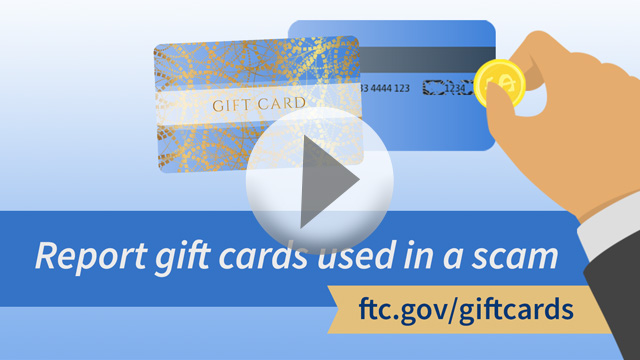Maybe someone said you’ve won the lottery, a prize or sweepstakes. Or they claim to be from the government and tell you there’s a problem with your Social Security number. And, to collect your winnings or solve your problem, you have to pay with gift cards. But here’s the thing: anyone who insists that you pay by gift card is always a scammer.
Learn more by watching this video about how to avoid gift card scams and how to report them.
Also, read more about paying scammers with gift cards to be sure you know how to avoid traps.
If you paid a scammer with a gift card, tell the company that issued the card right away. When you contact the company, tell them the gift card was used in a scam. And then report it to the FTC. Remember to keep the gift card itself and the gift card receipt, and, have them available when you contact the company and the FTC.
To stay up to date on scams that could affect your community, sign up for the FTC’s Consumer Alerts.
